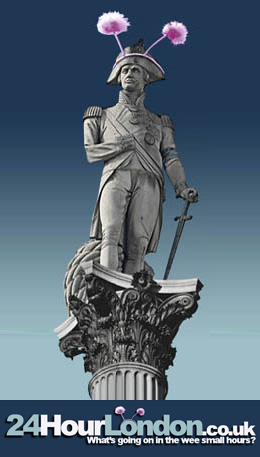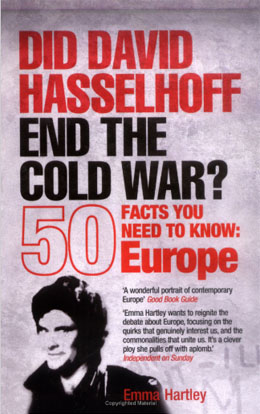The Coen brothers' latest film, Inside Llewyn Davis, is about a lush-bearded folk singer, played by Oscar Isaac - who looks a lot like British actor and folky Stephen Mangan - in Greenwich Village, New York, in the early 60s. The tale is reputedly based on the life of Dave Van Ronk, who released a similarly named album, Inside Dave Van Ronk, at around this time. And the movie is a beautiful thing: majestically shot, well told and provoking. In particular it invites the question of whether Davis is a loser, and thus also, slightly uncomfortably, whether we are ourselves losers?
I read this review, which takes a very clear line on the question, before seeing the movie at the Genesis in Mile End and thought about it again as I left the cinema because it wasn't as clear cut as the Indy had led me to expect. In the Guardian Peter Bradshaw took a slightly more forgiving approach and while picking up on telling details - the different meanings that a box of unsold records (or books) have to their originator and everyone else - Bradshaw's take on the central question seems to me to be the wrong one. Bradshaw thinks the central question is "Is Davis any good?" when we all know that completely depends on your musical taste.
If the answer to the question "Is Llewyn Davis a loser" is yes, then it would be because
* He, self-defeatingly, turns down a clear opportunity to try out for a new band when a Chicago agent, played by F Murray Abraham - whom he has gone on a desperate road trip to meet in exactly the hope that an opportunity would present itself - offers it to him.
* He plays an underwhelming, rather twee song to the aforementioned agent, when the final couple of scenes demonstrate that he's capable of better.
* He has a sourness about him that is unattractive unless you respond to the urge to fix people.
* He clearly - judging by his ongoing relationship with an abortionist - struggles with using a condom.
* He signs away his royalty rights to an upbeat song that turns out to be a hit.
* He is rude about an elderly female folk singer, which leads her husband to beat him up in the opening and closing scenes of the film.
However, the great thing about this film - one of them, anyway - is that all of the above happen for perfectly understandable reasons that force you to ask: would I have behaved any differently? So
* He turns down the audition because he's had a musical partner already, a friend who committed suicide, and this leads him to want to avoid partnering up again.
* The best music in the film comes from the period of Davis's life when he was with his dead friend, so he plays newer, more downbeat material at the audition instead.
* His "sourness" is completely understandable in the context of this bereavement. He is depressed. That's all: a small thing and a big one.
* It materialises that of the two girlfriends who have required the attention of an abortionist, one of them kept his child after all, while the most recent - Jean, played by Carey Mulligan, the real-life wife of Marcus Mumford - turns out to have slept with at least one other man behind the back of her boyfriend Jim - played by Justin Timberlake. While this does not nullify Davis's responsibility in the matter - it could still be his baby - it does undermine her stated reason for hating him (which helps us form a view of him early on), which is that if he hadn't been a loser who slept with other people's girlfriends, her baby would definitely have been Timberlake's. Hmm.
* He signs away the royalty rights because he needs cash in hand to pay for the abortion.
* And finally, while being rude to another, less successful musician is reprehensible, the context is that he has just discovered that the guy who runs the folk club has slept with Jean. His outburst is a direct result of this and begins with a pointed heckle, asking how the elderly lady got the gig (since the folk club guy has just said if people want to play at his club this is what it takes).
Other things that mitigate Davis's loser status include
* This is about one week in his life and we've all had bad weeks
* We can't all be Bob Dylan, whose character appears in the background to one of the final scenes. In fact, to set the bar that high denotes a childish, black-and-white view of the world: Dylan is possibly the most successful musician who has ever lived.
* People clearly like Davis. Women sleep with him and he has friends, enough to support his couch-surfing lifestyle.
* When we see Davis working in a studio he cooperates beautifully, does exactly what he's asked and is involved in producing a successful record.
* He takes his responsibilities - to his girlfriends, his friends and their cats (I'm not going to explain that, you have to go see it) - seriously.
But most of all, the reason why Llewyn Davis is a hero of sorts is because he is giving it a go. A lot of people would have allowed themselves to be dragged under by the suicide of their musical partner. Yet Davis, despite being seriously depressed, has got back in the saddle and perseveres: even when it looks as if he may have to leave the music industry he immediately sets about finding another job.
Defining someone as a loser when most of the bad stuff that happens to them is not of their own making is to ignore that success is mostly about turning up.
The losers are those who never try. Llewyn Davis is a survivor - which, in the grand scheme of things, is right at the top of the tree.
* If you'd like to receive posts from this blog directly into your Facebook newsfeed, you could *like* its Facebook page and then use the drop-down menu to indicate that it's one of your "interests". This will enhance the possibility that you'll get them. You could also follow me on Twitter at @emma1hartley









